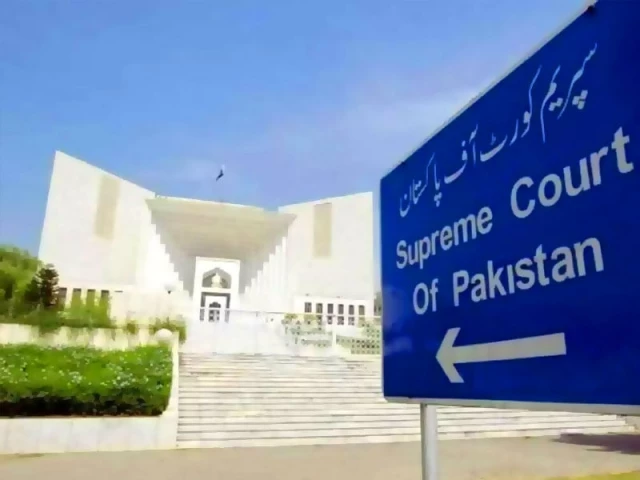ISLAMABAD:
In his dissenting opinion, Supreme Court Justice Athar Minallah has stated that law enforcement officials involved in extrajudicial killings, enforced disappearances and custodial torture deserve the harshest punishment under the law.
“Enforced disappearances, extrajudicial killings, torture and murder without liberty and excessive use of force are the most intolerable crimes in a democratic society and the worst forms of violations of the Constitution and the fundamental rights guaranteed therein.
“There can be no tolerance for such acts and behavior on the part of law enforcement agencies and their members and such cases warrant the imposition of the severest punishment when guilt is proven,” Justice Minallah wrote in his note upholding the death sentence of a Frontier Corps (FC) Balochistan soldier.
However, the majority judges commuted his death sentence to life imprisonment.
According to the case, a young university student, Mohammad Hayat, took his life in a gruesome, brutal and shocking manner while in the custody of armed members of a paramilitary force. It was a case of extrajudicial killing of an innocent citizen, committed in Turbat district of Balochistan.
Judge Minallah noted that in a society where complaints of enforced disappearances, excessive use of force, abuse of power, extrajudicial killings and violations of fundamental rights by law enforcement agencies are widespread, impunity for crimes committed against citizens becomes the most aggravated form of offence.
“The burden is compounded when a citizen is the victim of aggression by a law enforcement agency or its officials. Any such act or behavior is intolerable in a constitutional society. The rule of law is eroded when those law enforcement officers take the law into their own hands and allow themselves the role of judge and executioner. This is exactly what happened in this case.
Responding to the objection regarding the FC member’s trial in a civilian court, Judge Minallah said it was neither in the public interest nor in the interest of national security to refer such trials to military courts where the rights of citizens are involved.
“The scheme of the Constitution unequivocally contemplates protecting the armed forces from being exposed to controversies involving civilians. The constitution limits the role and functions of the armed forces under Article 245 to the defense of Pakistan against external aggression and, subject to law, to act in aid of civil power when called upon to do so,” he said.
He stressed that public confidence in paramilitary forces, especially when commanded by serving army officers, was essential for the discharge of their constitutional duties.
“In this case, a young university student was a victim of an extrajudicial killing by a member of a paramilitary force under the command of serving officers of the Pakistan Army,” he noted.
He further submitted that the appellant and FC Balochistan were governed by a special statute – Frontier Corps Ordinance, 1959 – and that the Sessions Court had full jurisdiction to conduct the trial.
“In the facts and circumstances of this case, a trial by a military court would have been against the public interest, illegal and unconstitutional,” he added.
On the issue of sentencing, Justice Minallah wrote that deterrent punishment is necessary not only to reflect the seriousness of the crime, but also to make the offender an example to others as a preventive measure to protect society.
“For heinous crimes committed with premeditation and brutality, there should be no leniency. A death sentence creates a deterrent in society so that no one dares to commit murder.
“When guilt is proven beyond a shadow of a doubt, a lenient view endangers the peace and opens the door to lawlessness. Courts must not hesitate to award maximum punishment where warranted.”
He noted that sentencing discretion must be exercised judiciously and that life imprisonment instead of death requires strong reasons recorded by the court. “The punishment must be proportionate to the seriousness of the crime,” he stressed.
Justice Minallah also highlighted the statutory role of the FC. A reading of the Ordinance of 1959 shows that the Frontier Corps, Balochistan was established primarily to protect and administer Pakistan’s external borders.
“The purpose of its existence is to protect citizens from external aggression, enemies, hostile entities and collaborators. Command and control rests solely with the federal government, which appoints senior officers, including the Inspector General, who is seconded from the Pakistan Army.
“The FC is a disciplined paramilitary law enforcement force whose duty is to protect citizens. Its officers and members are armed solely to defend the people and the state,” he noted.
He said that as a uniformed disciplined force, FC personnel are expected to maintain exemplary conduct, professionalism and integrity while dealing with civilians.
“They enjoy a position of authority and trust and therefore owe a fiduciary duty to the people. Breach of this duty has serious consequences for society and FC itself.
“The appellant, as a trained member of the FC, was expected to protect the victim, not kill him. The firearm issued to him was intended solely for defense, not for unlawful use against citizens,” he concluded.



